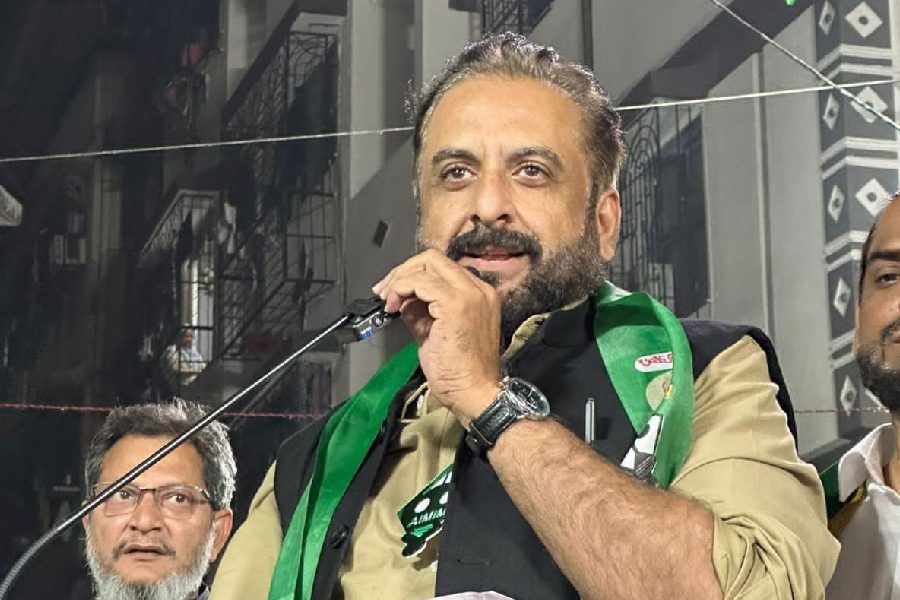|
|
There is little doubt that the prime minister, Manmohan Singh, would like to leave a substantial legacy in Kashmir. But his options are not entirely clear. It is perhaps a reminder of the gap in perceptions that exists between Kashmir and the rest of India, that the impact of his visit has been assessed in very different ways in Kashmir and in Delhi.
The Delhi press, with its usual mixture of sentimentalism and historical ignorance, saw the visit as an important breakthrough; the Kashmiris seem to have seen it as anything but. While Delhi was focused on the prime minister?s intentions, Kashmir was focused on his strategy. And there is still something of a gap between the two.
Any leader who visits Kashmir has to go the extra mile to establish credibility. The task is even more difficult for a Congress leader, who has to bear the burden of his party?s historical blunders in Kashmir.
It would have helped if Singh had, on this occasion, not just expressed empathy with the plight of the Kashmiris, but also distanced himself from the past of the Congress party. This would have sent a decisive signal. The announcement about the redeployment of troops seems to have gone down well, although the government was careful to not commit too much. But the Rs 24,000 crore package seems to have backfired. It unwittingly gave the impression that there was more new money on offer. But most of the money has apparently already been earmarked and that too for Central power projects. As wonderful as power projects are, they do not do the political hard work in Kashmir for the following reason. There is a sense that these projects are simply a way of the rest of India using Kashmir for its own purposes; and the ownership of these projects does not devolve to Kashmiris. The package added needless confusion to an otherwise heartfelt speech.
The visit seems to have left three issues unresolved. The first issue is: who is going to represent the Kashmiris? The prime minister tried to address the Kashmiri people directly, but any concrete negotiations will have to occur through representatives. The dilemma is that the elected government of Kashmir does not enjoy the kind of mandate to be regarded as unproblematically representative. The Hurriyat on the other hand has never had its mettle tested in electoral politics. But excluding the Hurriyat ? all its factions ? from talks would be a political mistake. The Hurriyat still enjoys popular support and for an enduring peace, this is the constituency that will need to be addressed. Moreover, as Shivraj Patil?s inept statements demonstrated, if you make a distinction between moderate and hardliners, including one and excluding the other faction, you put the credibility of the moderate faction in jeopardy. At least for the purpose of talks, we should be talking to everybody. The other option is to make the Hurriyat irrelevant, but it is not clear if the government is in a position to do this.
The second drama centred on exactly what counts as a precondition for talks. We ended up in a Catch-22 situation where the Hurriyat seemed to be saying that if the government was interested in talks without preconditions, then why was it objecting to Hurriyat leaders travelling to Pakistan? Was this not a ruse to exclude them? The government, by contrast, interpreted the lack of preconditions to mean that Hurriyat should talk even if permission to travel was denied. This is one issue where the government could have been more liberal. It is not clear that any of our core interests would have been put at risk if the Hurriyat had been allowed to travel to Pakistan.
But the Pakistan link is crucial for another reason. The government of India has a two track process on Kashmir. The first is designed to address India-Pakistan differences on Kashmir; the second is to address the differences between the Kashmiri people and the government of India. But in Kashmir, the refrain was: what is the relationship between the two dialogues? If India is going to cut a deal with Pakistan, where does this leave the Kashmiris? On the other hand, if we cut a deal with the Kashmiris, what is going to be Pakistan?s role? There is probably not too much consternation about Pakistan?s possible role. But there is a genuine worry that Kashmiris might be marginalized in any India-Pakistan negotiation. Ironically, the more powerful signals we send to Pakistan that we are willing to talk, the more it raises doubts in Kashmir about what exactly we are up to.
The process of peace is often wrecked, not by militancy, but by the uncertainties of the participants in a peace process. That is why, even where there is a commitment to peace, residual anxieties about motives and intentions, or simply an uncertainty about what other participants might be thinking, can prove to be insurmountable obstacles. Singh?s visit sends a strong signal about his commitment to peace with justice. But whether the signals were sufficiently strong to overcome these indeterminacies remains to be seen.
This is only the first stage of a dialogue process and it would be surprising if the prime minister did not have more credible offers up his sleeve. But the government will have to be very clear on what its goals are. The broad parameters are relatively fixed: Kashmir is an inseparable part of the Indian Union. But within this constraint, the government can think of an autonomy package.
But if this is the goal, then the government will need two things. First, an autonomy package that gives enough to the Kashmiris to make them happy, without compromising on the government?s core interests. Coming up with such a package will take extraordinary political finesse and imagination. Second, Kashmiris will have to be given a more tangible stake in the rest of India. At one level, it is obvious to anyone in Kashmir that the state will always have to be dependent upon India. But we have been unable to create enough of a political stake for Kashmir?s Muslims in the power structures in Delhi.
Most states are integrated into the Union, because their political elites acquire a stake in access to power at Delhi. Kashmiris feel politically marginalized in this respect, and from the government?s point of view, we will have to create mechanisms of integration that give them a real sense of power in Delhi.
Looking at the impasse in Kashmir, one cannot but be impressed by the British cunning at creating that peculiar institution: the Round Table Conference. Although they were not always successful, they at least got almost all the parties together in one forum. This had the dramatic effect of showing each party that its concerns were not the only ones on the table. Often the divisions between the parties changed the parameters of debate. Any solution will have to be an all-things-considered solutions. But all-things-considered solutions require fora where all parties can be simultaneously represented. The government?s strategy in all its negotiations, whether in Kashmir or the North-east, has been dyadic: negotiate with each party separately. This generates the fear that concessions may be given to one group that would be detrimental to another; we co-opt one group and unleash another. Even in Northern Ireland, the crucial breakthrough was through a kind of omnibus forum. Perhaps it might be a little premature to think of such an option. But at some point, the need for such a mechanism will become inevitable.
The next time we announce a package in Kashmir, it might be worth taking the Planning Commission and having it camp out for a week in Srinagar. Let the Kashmiris tell us what they want to spend money on. Our economic assistance should not be seen as a form of paternalism. After all, perceived paternalism is what the dispute is, in part, about.











